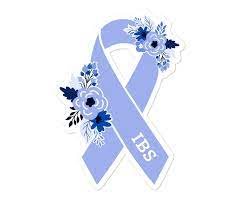
Eating Fat Myths: Does It Make You Fat? Exploring the Truth
Confused about whether eating fat leads to weight gain? Let’s uncover the myths and explore the truth behind consuming fats. Discover how incorporating the right kinds of fats into your diet can promote overall health and well-being.

No, eating fat does not necessarily make you fat. Weight gain occurs when you consume more calories than you burn, regardless of whether those calories come from fat, carbohydrates, or protein.
Overview of eating fat
In fact, some sources of dietary fat, such as nuts, seeds, avocados, and fatty fish, are actually beneficial for weight management and overall health. These foods are rich in unsaturated fats, which have been shown to improve heart health, reduce inflammation, and promote satiety, helping you feel fuller for longer and eat less overall.
Consuming an excess of calories, regardless of their source, can indeed lead to weight gain. While it’s true that fat contains more calories per gram compared to carbohydrates or protein, it’s the overall calorie balance that ultimately determines whether weight is gained or lost.
Portion control plays a crucial role in managing calorie intake. Even healthy foods like nuts, avocados, or olive oil, which are rich in beneficial fats, can contribute to weight gain if consumed in excessive amounts. Therefore, it’s essential to be mindful of portion sizes and incorporate them into a well-balanced diet.
Moreover, total calorie intake should be considered alongside physical activity levels. Regular exercise helps to burn calories and can offset the effects of occasional indulgences or higher-calorie meals. Striking a balance between calorie intake and expenditure is key to maintaining a healthy weight and overall well-being.
In addition to watching portion sizes and total calorie intake, it’s important to focus on the quality of the foods consumed. Opting for nutrient-dense foods, such as fruits, vegetables, lean proteins, and whole grains, can help provide essential vitamins, minerals, and fiber while keeping calorie intake in check.
Ultimately, rather than demonizing any specific nutrient, including fat, it’s essential to adopt a balanced approach to nutrition that emphasizes moderation, variety, and mindful eating habits.
It’s also worth noting that not all fats are created equal. Saturated and trans fats, which are often found in processed foods and animal products, have been linked to increased inflammation, insulin resistance, and an increased risk of heart disease. These types of fats should be consumed in moderation, while unsaturated fats, such as those found in plant-based foods and fatty fish, should be emphasized in the diet.
Disclaimer: The information provided in this content is for general informational purposes only. It is not intended as medical or healthcare advice, diagnosis, or treatment. Always seek the advice of a qualified healthcare professional with any questions you may have regarding a medical condition or healthcare decisions.
















